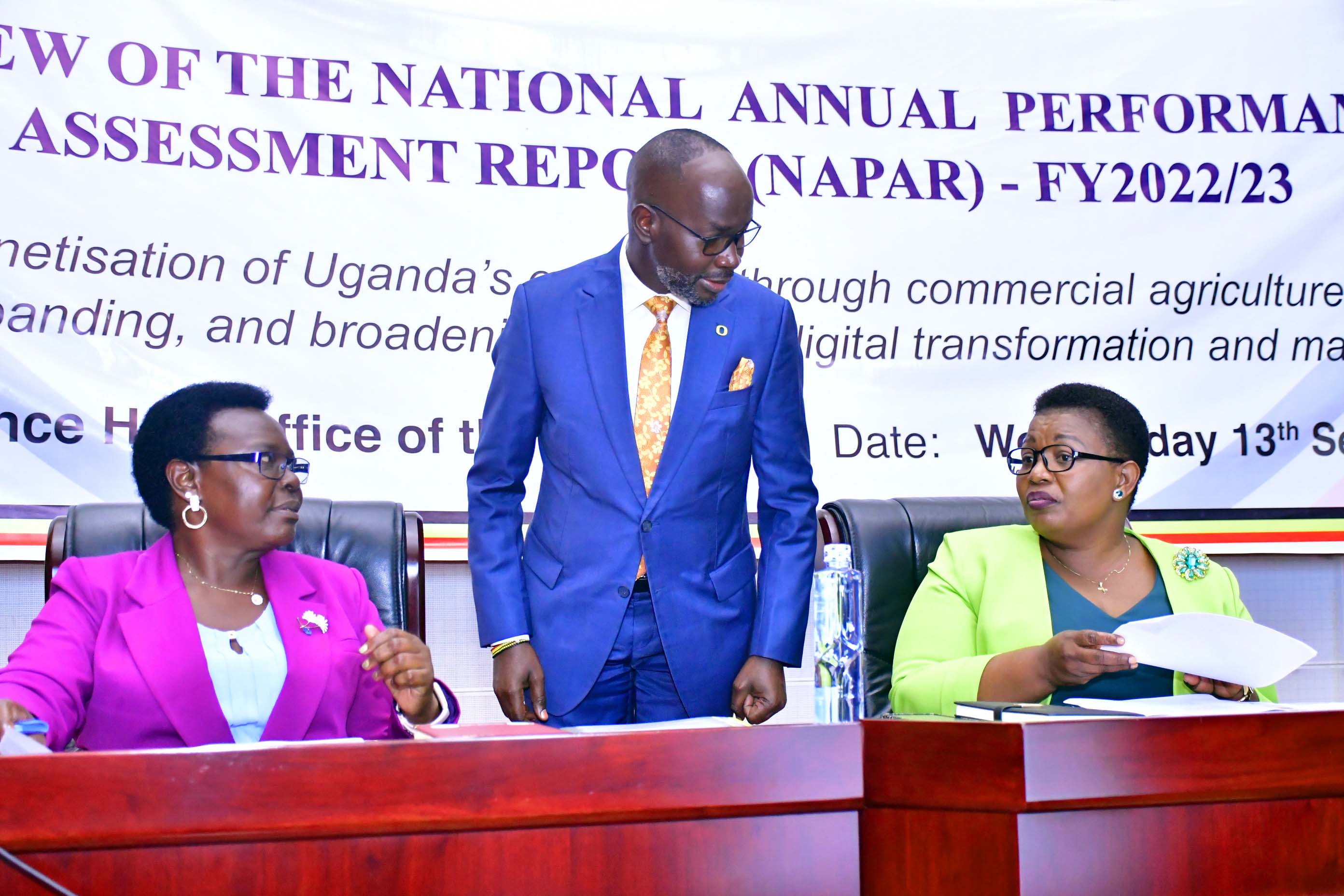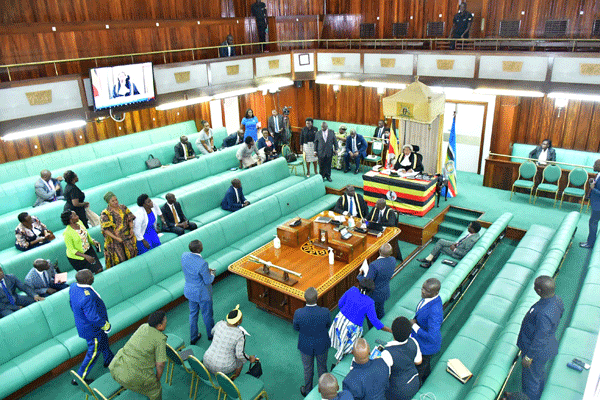Best and worst govt ministries revealed

Left-Right: State Minister for Northern Uganda Grace Kwiyucwiny, Government Chief Whip Denis Hamson Obua and Minister for General Duties in OPM Kasule Lumumba at the release of the National Annual Performance Review for 2022/23 in Kampala on September 13, 2023. PHOTO/ DAVID LUBOWA
What you need to know:
- The details are contained in the national annual government performance assessment report 2022/23 that was released yesterday.
Thirteen out of 20 government ministries, departments and agencies accomplished less than half of the targets they set for themselves despite spending trillions of shillings, a new report shows.
The outputs by 15 of them impacted lives of Ugandans and the economy marginally, with Shs274b spent on innovation, technology development and transfer bringing no gain.
The grim details are contained in national annual government performance assessment report 2022/23 that the Office of Prime Minister, which coordinates all ministries, released in Kampala yesterday.
The assessor ranked the entities according to budget, output (planned things achieved) and outcome (impact of achievement on citizens).
Although four out of every 10 goals set under innovation, technology development and transfer were achieved, officials said it yielded 0 percent outcome because technology innovation gains take longer to impact.
The news would be a heartbreak for government, putting Uganda on a backpedal in a world coursing ahead with the 5th industrial revolution that President Museveni wants the country to optimise.
According to the evaluation report, a handful of ministries and agencies scored fairly well on output and incomes, giving value for tax payers’ money. Among these is administration of justice that spent Shs401b, achieved four out of every 10 targets, but its work created a positive impact ranked at 75 percent.
Petroleum development, a nascent sector in which Uganda projects to start production in 2025, had 38 output and 73 percent outcome for its Shs869b expenditure.
Other sectors that ranked highly in outcomes included digital transformation, governance and security (73 percent for its Shs7.5 trillion budget), and digital transformation (73 percent).
Community mobilisation and mindset change, a campaign that the ruling party’s elite christened as promoting patriotism, sucked Shs87 billion from the national coffers but its impact was only 17 percent despite its proponents achieving seven of every 10 things they planned to do.
Other entities whose outcome rankings tied at 17 percent are legislature, oversight and representation and development plan implementation.
The performance assessment for the financial year ending June 2023 was based on key indicators per ministry and agency in the National Development Plan III.
Development plan implementation took the lion’s share of the budget (Shs17.7 trillion) but accomplished just half of what it planned and its outcome score was 17 percent.
Releasing the report yesterday, the minister for General Duties in OPM, Ms Justine Lumumba, attributed the less-than-satisfactory performance to several factors such as partner banks frustrating agricultural sector by withholding cheap credit from government for farmers and instead promoting their expensive loans.
“We have injected money, but when you go to the banks, they don’t market the agriculture credit financing scheme but instead market their loan schemes, which are very expensive. We need to review this and devise a way forward,” she said.
The minister asked technocrats in government and politicians not to relax but work together to ensure that government programmes are fully implemented across the country to transform lives of Ugandans.




